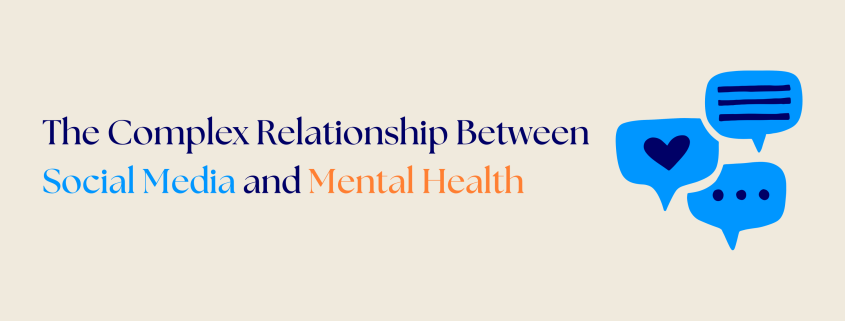
The Complex Relationship Between Social Media and Mental Health
In today’s increasingly interconnected world, social media has become an integral part of our daily lives. Social media has transformed the way we communicate, share information, and connect with others. While social media platforms offer many benefits like fostering social connections and promoting information sharing, there is growing concern about its impact on mental health. Keep reading to learn more about the complex relationship between social media and mental health.
Benefits of Social Media
Social media platforms offer a wide range of benefits, which contributes to their widespread popularity. Social networks enable individuals to stay connected with friends and family, regardless of geographical distances. They provide platforms for expressing creativity, promoting businesses, and raising awareness about important issues. Moreover, social media can serve as a source of emotional support, as individuals find solace in online communities that share similar experiences and challenges.
The Dark Side of Social Media
While social media has undeniable advantages, its negative impact on mental health cannot be ignored. One of the key concerns is the potential for excessive use and addiction. Constantly checking notifications, comparing oneself to others, and seeking validation through likes and comments can lead to feelings of anxiety, low self-esteem, and even depression.
The highlight-reel nature of social media can also contribute to feelings of inadequacy. People often present carefully curated versions of their lives, showcasing the positive aspects while omitting the challenges and hardships. This can create an unrealistic standard of comparison, leading to feelings of dissatisfaction and a distorted perception of reality.
Cyberbullying and harassment are prevalent issues on social media platforms. Individuals on social platforms may face derogatory comments, public shaming, or even online abuse. Such experiences can significantly impact mental well-being, cause stress and anxiety, and even trigger severe mental health conditions.
Social Comparison
Social media platforms provide ample opportunities for social comparison, which can adversely affect mental health. Individuals often compare their achievements, appearances, and lifestyles with others, leading to feelings of envy, insecurity, and decreased self-worth. This constant exposure to idealized versions of others’ lives can create a negative impact on one’s mental state.
Furthermore, the fear of missing out has become prevalent in the age of social media. The fear of being left out of social events and experiences portrayed online can contribute to heightened stress and anxiety. The constant need to stay connected and updated can disrupt sleep patterns and overall well-being.
Addressing Mental Health Concerns
Recognizing the potential harm caused by social media, various initiatives have been undertaken to address mental health concerns associated with its use. Social media platforms have implemented features to promote positive mental health, such as pop-up notifications reminding users to take breaks and limit screen time.
Additionally, mental health organizations and professionals have leveraged social media as a platform to spread awareness, provide resources, and offer support to those in need. Many influencers and celebrities have also embraced social media to openly discuss mental health challenges, reducing stigma and encouraging dialogue.
How to Have a Healthy Social Media Experience
While society works towards creating a healthier social media environment, individuals can adopt strategies to protect their mental well-being. These include:
Mindful Usage
Be aware of one’s emotions and take regular breaks from social media to focus on offline activities and self-care.
Curating the Feed
Unfollow accounts that trigger negative emotions or create an unhealthy comparison and follow those that promote positivity, inspiration, and education.
Limiting Screen Time
Set boundaries and allocate specific periods for social media use. This will help to prevent excessive consumption and reduce the risk of addiction.
Authenticity and Self-Acceptance
Embrace uniqueness and practice self-compassion instead of seeking external validation.
Real-World Connections
Prioritize face-to-face interactions and nurture meaningful relationships outside the digital realm.
Because of the combination of positive and negative factors involved with social media, its relationship with mental health is complex. While social media platforms offer numerous benefits, it is crucial to acknowledge and address the potential harm they can cause. By promoting responsible usage, implementing protective measures, and adopting individual strategies for a healthy online experience, we can mitigate the negative impact and ensure that social media remains a tool for connection, learning, and positive mental well-being.
Talk to Someone
If you are struggling with anxiety or depression, you are not alone. At Oasis TMS, our mission is to offer an environment conducive to providing results-orientated relief from depression and other mood disorders. Contact us today to learn more about if TMS therapy is right for you.
Leave a Reply
Want to join the discussion?Feel free to contribute!